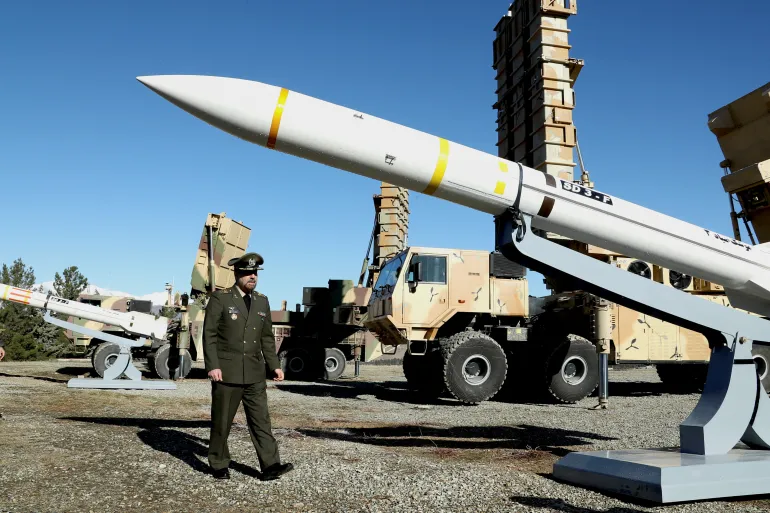With tensions escalating in the Middle East, Special Correspondent DOUGLAS RASBASH assesses probable outcomes
On the night of 13 April, Iran attacked Israel with drones and missiles in retaliation for an attack by Israel on the Iranian consulate in Syria on 1st April, The Botswana Gazette asks, could this be the spark that ignite global conflagration?
Israel reported that more than 300 drones and missiles launched at it from Iran, Iraq and Yemen, adding that the vast majority of them were intercepted. Iran says it carried out the attack in response to an Israeli raid on the Iranian Embassy in Damascus and the matter can now “be deemed concluded”. The Prime Minister of Israel, Benjamin Netanyahu, told the people of Israel, “Whoever harms us, we will harm them.”
Behind the scenes
So the international community is wondering what the next steps will be.
Although Botswana outwardly shows little interest in important international events and always places them last in the sequence of BTV News as it did on Sunday 14 November when an item that the police had beaten the BSB team in darts was more newsworthy, we can be sure that behind the scenes at the Ministry of Foreign Affairs and International Cooperation, a team is watching and analysing the situation.
In a Gazette exclusive, the minister Dr Lemogang Kwape had this to say about the Middle East conflict: “Obviously, instability in any region will spell distress for us. The Middle East has been volatile for quite some time and this has a dent on peace and security globally, continentally, as well as in our region. This instability will also have a knock-on effect on our economic development as a country.”
Civilians and children
Asked how Botswana could help to de-escalate the crisis the foreign affairs minister answered: “The AU has called for de-escalation of hostilities and protection of civilians and children in particular.” He added that “Botswana has also … issued a statement along the same lines.”
Botswana is a part of the international community and has become increasingly so under the Mokgweetsi Masisi administration. We would like to believe that MoFA follows international events closely.
There might be four scenarios. 1) The international community steps up the pressure to find a lasting solution to the Middle East conflict. 2) After much hot air in the utterances of world leaders, the situation will return its usual state of attrition. 3) The situation escalates and becomes a regional war involving Iran, Syria, Lebanon, Yemen and Israel. 4) Global powers are drawn into it to start World War III.
- International Community Engagement:
The first scenario posits increased international involvement aimed at finding a lasting solution to the Middle East conflict. This would involve diplomatic efforts, multilateral negotiations, and potentially deployment of peacekeeping forces. While desirable in theory, historical precedent suggests that achieving consensus among the myriad stakeholders in the region is a daunting task.
Additionally, geopolitical interests often complicate efforts at meaningful intervention, limiting the efficacy of external mediation. It is here that Botswana can offer its opinion in the search for lasting peace in the Middle East and help stem the tide of aggression.
- State of Attrition:
The second scenario suggests a return to the familiar cycle of intermittent conflict and uneasy ceasefire agreements characterised by sporadic violence but devoid of significant escalation. This scenario, while perhaps the most probable given historical patterns, is by no means sustainable.
It is a state of perpetual instability that prolongs the suffering of civilians and undermines prospects for durable peace and prosperity in the region. Botswana could ask the AU to exert its influence on the G20 to sanction hostilities on all sides because Africa always suffers.
- Regional Escalation:
The third scenario presents a grim prospect: the escalation of hostilities into a full-blown regional war involving not only Israel and Iran but also their respective allies in Syria, Lebanon and Yemen. Such a scenario would unleash untold human suffering, devastate infrastructure, and have far-reaching implications for global security and stability. The interconnected nature of modern conflict means that the ripple effects of regional warfare would be felt far beyond the borders of the Middle East. Here Botswana, as the most peaceful African country, can demand that the African Union urge its members not to be drawn into a regional conflict.
- Global Conflagration:
The final scenario, albeit the least likely, would be the most catastrophic: involvement of global powers leading to the outbreak of World War III. While the spectre of such a scenario looms large in the collective imagination, the inherent risks and costs associated with direct military confrontation between major powers act as a powerful deterrent. Historically, the Middle East conflicts such as the 1967 and 1973 wars did not escalate to WW III.
However, in an increasingly multipolar world characterised by great power competition, the potential for miscalculation and unintended escalation cannot be discounted entirely. Here Botswana ought to have its Ambassador to the United Nations working hard with members of the UN Security Council to ensure that WWIII is prevented at all costs.
In light of these scenarios, it is imperative for the international community to redouble its efforts to prevent further escalation and pursue avenues of de-escalation and conflict resolution. While the usual state of attrition in the Middle East may look like the path of least resistance, it is ultimately unsustainable and risks further destabilising an already volatile region.
The most probable outcome, therefore, lies in a combination of diplomatic engagement, regional de-escalation, and concerted efforts to address the root causes of conflict in the Middle East. Only through collective action and a commitment to dialogue can the cycle of violence be broken, paving the way for a more peaceful and prosperous future for all stakeholders in the region and beyond.
Pic. Al Jazeera

